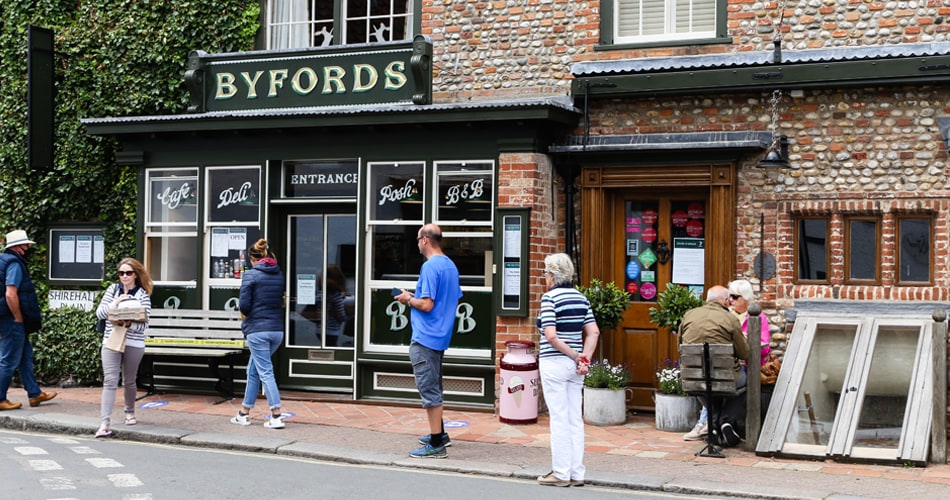
From Saturday 4 July restaurants, pubs and bars in England were allowed to open their doors to the public again.
While some were out early, queuing while waiting for pubs to open in the morning, operators got busier as the day went on – research firm Springboard reported that footfall increased by 26% in Central London after 5pm.
The reopening was widely welcomed by consumers. Barclaycard, which processes around £1 in every £3 spent in the UK reported an increase of 295% in spending in pubs and bars on Saturday and Sunday compared to the same period the week before, when they were shut.
Though many operators chose to open at the earliest opportunity to get business going again, many others adopted a wait-and-see approach and a later opening date. According to hospitality data and research consultancy CGA, out of a total of 40,575 bars and pubs in England, just over 18,000 opened equating to around 45%.
Government support
Despite the boost of reopening for many operators this remains a treacherous time and the industry is calling for extensive government support to continue the recovery. “Our sector has been a high-profile casualty of this crisis and businesses are only now just beginning to reopen,” says chief executive Kate Nicholls.
“For those businesses that have survived, the hard work begins now. We cannot assume that we are now in the clear just because our doors are open again. Many businesses have taken huge hits and hundreds of thousands of jobs are still in the balance.”
The industry organisation published an ambitious plan to revive the sector, asking for measures such as a reduction in VAT, which was subsequently granted by chancellor Rishi Sunak during his summer statement where he announced a reduced rate of 5% of VAT for a limited period. Sunak also launched a nationwide discount scheme for diners throughout the month of August, which would see all diners benefit from a maximum discount of £10 to encourage more people into restaurants.
Post-Covid safety measures
The reopening of hospitality is conditional on the continued implementation of Covid-19 health and safety precautions.
Restaurants have introduced larger space between tables and come up with innovative ways to keep guests at a safe distance. In most pubs and bars table service was introduced and, where not possible, Perspex® screens have been erected to protect staff – wearing PPE – from any risk. Contactless payments and reduced touch points further help to keep customers and staff safe.
Many places asked customers for contact details in an effort to help with any tracing effort – subsequently after the reopening weekend several pubs have closed again for deep clean after staff and customers reported positive Covid tests.
Responding to industry
Before announcing the easing of lockdown measures, the government heeded calls from the hospitality sector and reduced the mandated two-metre social distancing requirement to what they labelled ‘one metre plus’. The message was that where possible two metres distance should continue to be observed but acknowledging that this is not always possible.
Prior to this announcement restaurants had said that retaining the two-metre rule would mean operators would only be able to earn 30% of prior revenue while one metre increased this to 70%.
The government announcement followed a campaign from the Save our Soho campaign, which lobbied for a change licensing laws and widespread pedestrianisation of the central London area, allowing operators to move tables outside on to pavements and streets.
“With so many brilliant independent businesses in Soho, we are at risk of losing the culture that makes the area so special. Despite the awful effects of the crisis, it has been incredibly warming to see the community come together in such a way,” said John James, managing director of Soho Estates, who started the campaign.
Tina Nielsen
